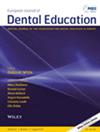E-Learning in Dental Medicine: A Key to More Equality?
Abstract
Introduction
The COVID-19 pandemic prompted a rapid shift towards remote learning in dental education, influencing practicing dentists' work-life balance (WLB). This German nationwide questionnaire study, conducted in September 2022, aimed to explore the impact of transitioning to remote learning on the WLB of dentists, considering factors such as gender, parental status and professional roles.
Methods
A voluntary and anonymous online survey involving 672 dentists utilised the ‘Trier Short Scale for Measuring Work-Life Balance’ (TKS-WLB). Statistical analyses used R, employing descriptive statistics for metric variables and mixed models for group comparisons. Post hoc analyses utilised t-tests.
Results
Overall, participants reported an enhanced WLB post-transition. Gender disparities were observed, with men consistently experiencing better balance than women. The primary motivator for online training participation was the reduction of travel-related challenges, cited by 92% of respondents. Notably, 52.8% faced no issues with the transition, and 55.5% found online training to complement in-person events effectively. Women (71.8%) and participants with children (73.2%) expressed a preference for future asynchronous online training opportunities.
Conclusions
This study underscores the positive impact of remote learning on the WLB of dentists, extending beyond the pandemic's challenges. Innovative online training programs, particularly beneficial for women and those with family commitments, have the potential to reshape dental education.


 求助内容:
求助内容: 应助结果提醒方式:
应助结果提醒方式:


